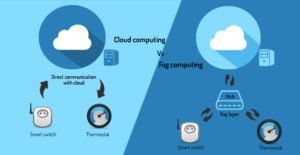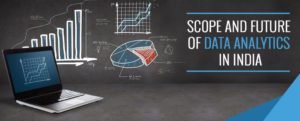An enterprise or any organization collects a massive amount of data daily while performing its operations. This data can be in the form of customer information while making purchases, vouchers,s, and bills by manufacturers, viewership on the online portals, etc.
For an upward movement in the market, it is significant that this big data does not lie untreated in the systems of the company instead it should be worked upon and put to good use to increase the efficiency of the company.
To screen and filter the big data, data analysts are hired to convert that data into a useful piece of information. It may be likely to occur to you that how big data influences an organization’s functioning. There are some decisions that are largely based on big data.
Influence of Big Data on Decision Making of an Organization
In the following three ways, big data creates an impact on the decision-making and the overall performance of a company.
- Promotional enhancement through real-time data
Whenever you shop from a branded store, you start receiving emails about their offers which sometimes claim that some deals are exclusively for you. Do you ever wonder how they send personalized emails to every customer based on their interests and their shopping histories?
 These all are some promotional activities which the companies do by making use of big data. Big data influences the decision-making of the promotional activities of a company.
These all are some promotional activities which the companies do by making use of big data. Big data influences the decision-making of the promotional activities of a company.
By doing this, customers may feel informed through the brand and it is sometimes the biggest and the most important step towards creating customer loyalty and long-term relationships.
- Expanding Operations Without Spending Too Much
To initiate a promotional activity or a campaign to attract customers, some companies spend a hefty amount of money which may or may not turn out to be 100 percent successful. However, by making effective use of big data these expenses can be avoided. If you already know which customer tends to buy within a specific price range, personalized promotions through the internet become easy.

Moreover, wasteful expenditure can be avoided to a great extent. Real-time data can prove to be beneficial in determining some major issues in a particular product or service.
Companies can appoint data analysts who can screen the real-time data and make necessary changes as and when required.
- Speeding the Action
Whenever a company launches any product in the market, it is always hard for the company to anticipate the response it may get. Supposedly, the customers have questions or certain queries about the product, taking some time to answer them might affect the overall image of the company as well as the product.
Big data helps to tackle this problem in real-time. Queries can be handled in seconds than wasting several minutes and replacements can be made in fewer days as compared to the time it used to take earlier. Big data has brought about a paradigm shift in decision making which has made customer dealing and answering queries a much simpler task.
Conclusion
With edge-to-edge competition in the market, it is significant for any organization that it makes effective use of big data in its favor.

With the proper use of big data, companies can foresee and predict the future market for their products and services as well. The points mentioned above have presented a lucid picture of how important big data has become lately.
 A big data career can prove to be beneficial and is considered among the most demanded career options.
A big data career can prove to be beneficial and is considered among the most demanded career options.
For big data training, you must check out the courses and professional assistance being offered by Imarticus learning.



 Enterprises now a days prefer the employees with the experience of working on the cloud platforms like Amazon Web Services etc. Sound knowledge of Data warehousing and Data modelling is also given a lot of preference these days.
Enterprises now a days prefer the employees with the experience of working on the cloud platforms like Amazon Web Services etc. Sound knowledge of Data warehousing and Data modelling is also given a lot of preference these days. Pipe-line centric Data Engineers work in coherence with Data Scientists to utilize their collected Data. Database-centric Data Engineers manages the Data-flow and database analytics.
Pipe-line centric Data Engineers work in coherence with Data Scientists to utilize their collected Data. Database-centric Data Engineers manages the Data-flow and database analytics.
 Conclusion
Conclusion 
 While this clearly indicates that the importance of data scientists is on a steady rise, it also indicates that companies need to better analyze the capabilities of each individual domain to choose the right man for the job.
While this clearly indicates that the importance of data scientists is on a steady rise, it also indicates that companies need to better analyze the capabilities of each individual domain to choose the right man for the job.

 When data is transferred to a remote cloud server, it allows the user to perform various complex algorithms with machine learning and thus predict the maintenance needs of a particular section. This is then forwarded to a dashboard on a personal system where one can determine what decisions are to be made further. This is all done comfortably from home or the office.
When data is transferred to a remote cloud server, it allows the user to perform various complex algorithms with machine learning and thus predict the maintenance needs of a particular section. This is then forwarded to a dashboard on a personal system where one can determine what decisions are to be made further. This is all done comfortably from home or the office. A
A